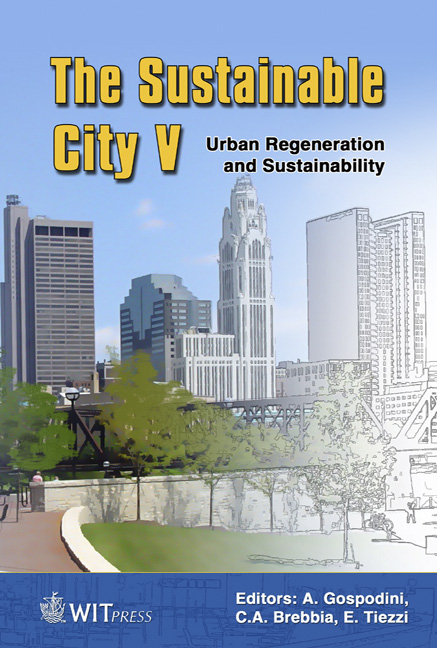Engineering Sustainable Sewage Systems
Price
Free (open access)
Transaction
Volume
117
Pages
10
Page Range
165 - 174
Published
2008
Size
272 kb
Paper DOI
10.2495/SC080161
Copyright
WIT Press
Author(s)
B. Rydhagen, C. Dackman, H. Åberg & S. Jonsson
Abstract
Urban sewage collection is part of an infrastructural system developed during the past century to increase convenience and hygienic standards in households. With the attention on sustainable development growing during the 1980s–1990s, Swedish municipal sanitation professionals began to pay attention to recycling of the nutrients in the sewage. The attempt in this paper is to draw together important thoughts from studies of professions, of communication and of sanitation and other infrastructural sociotechnical systems in an effort to better understand current efforts to increase sustainability in the sewage system in Sweden. It is argued that the momentum of a large sociotechnical system like the sewage network makes it difficult to change the system. However, with the focus on sustainability and on recycling of nutrients, sanitation professionals express an increased need to communicate with users and other actors, in order to reduce harmful substances in the system. In two Swedish municipalities, two different methods to improve the quality of the sewage were tried; source separation of toilet sewage water, and intensive information to households about proper use of the current system. In the former case, existing social and organizational structures were preserved, while the latter case caused increased collaboration with other municipal staff as well as households and other actors. Keywords: sewage, sanitation, professionals, engineer, communication, sociotechnical system, household, user, sustainable development. 1 Introduction Engineering has the advantage of being both a noun and a verb. It is an activity as well as a profession. Using it in both senses, we intend to discuss the ways
Keywords
sewage, sanitation, professionals, engineer, communication,sociotechnical system, household, user, sustainable development.





